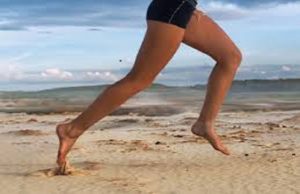 As research into common hip injuries progresses, so too does our understanding of how we manage this.
As research into common hip injuries progresses, so too does our understanding of how we manage this.
One of the biggest shifts in research on Gluteal Tendinopathy is how we manage the injury. What we thought was best practice in the past might not be the best thing for it now.
Tendinopathy of the Gluteus Medius and Gluteus Minimus muscles is a common presentation in active runners, cyclists, sedentary workers, stay at home mums, and especially menopausal women.
The problem exists when there is a change in load which causes the tendon to adapt and often change the composition of fibres within the tendon, from mostly strong collagen fibres, to an increased proteoglycan content.
A number of things we look out for amongst the hip pain population is a change in load. This can be from a number of things such as runners who transition into hills, cyclists who are doing a lot more sprint work in the saddle, sedentary workers who are sitting crossed legged, or who hinge on a hip when socialising, new mothers as they carry a baby on one side to free up an arm, and women around menopause when there is a natural weight gain and a change in oestrogen levels.
In fact because of changing hormone levels women are 3:1 more likely to have a gluteal tendinopathy than men.
As research has progressed, so too has our understanding of how to manage this type of hip pain.
When diagnosed with hip pain there are several things you should try to avoid:
– Sitting cross legged
– Hanging on your hip in standing, resting all your weight on one leg, or hip hitching as we call it
– Sleeping on the painful side without a pillow between your legs
– Stretching your hip
– Clam shell exercises in early diagnosis
– Running on a camber at the track, or on a road
– Saddle sitting – either on the bike, or in some ergonomic work chairs
– Lying on your side on the couch
Some things that may help you manage this pain include:
– Placing an egg shell underlay on your bed if you are a side sleeper, and sleeping with a pillow between your legs
– Modifying your exercise program to remove hills, or running on a camber, or high intensity hip abductor exercises
– Sitting with your legs uncrossed while at work, home or out socialising
The best line of treatment is one that helps to reduce tendon pain but also teach you how to strengthen the tendon and surrounding muscles to avoid recurring injury. The Physio’s at Bend + Mend in Sydney’s CBD are trained in how to treat hip tendon injuries so you can get back to your normal level of activity sooner. Book in today to avoid the annoying prolonged pain that I common with tendon injuries.
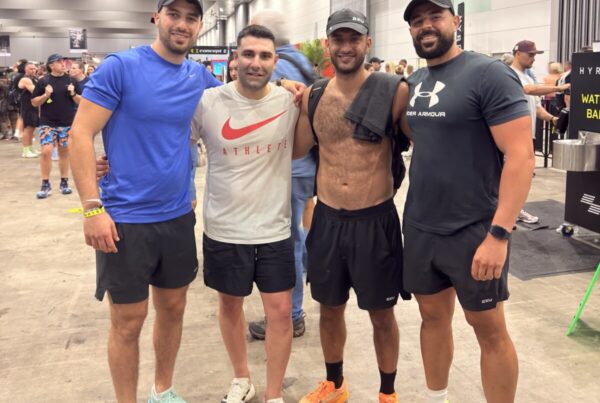
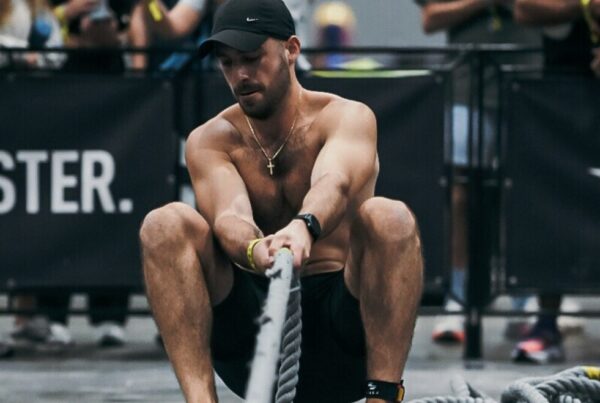
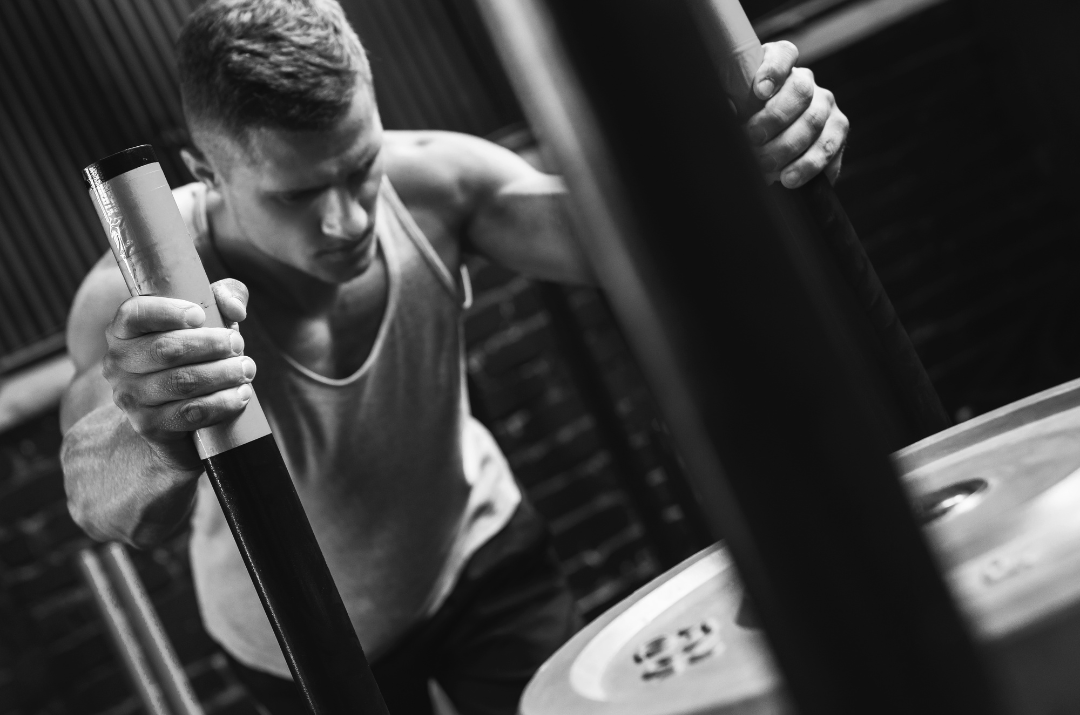

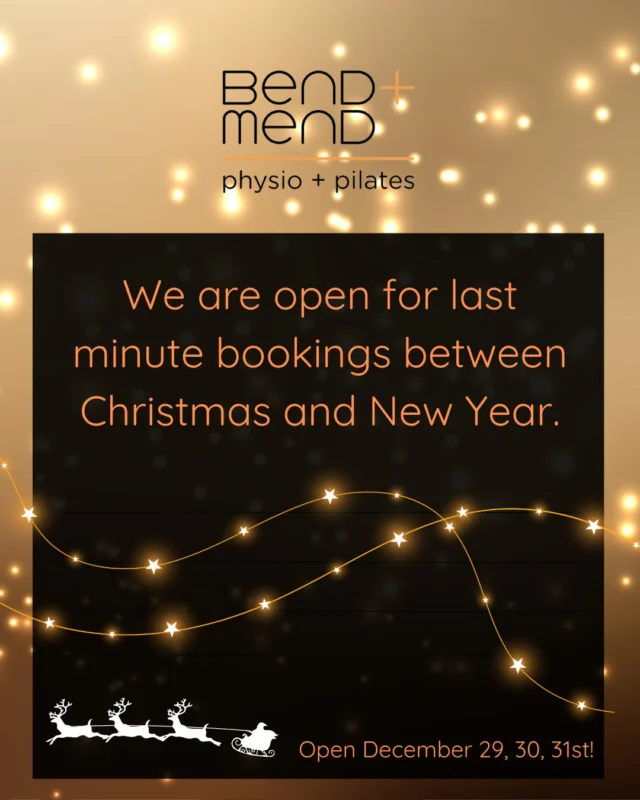
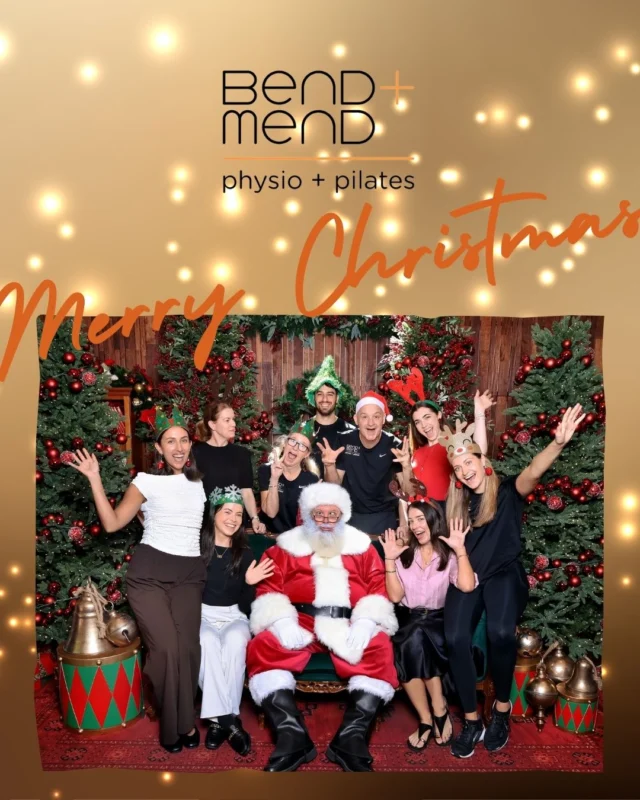
Hello Campbell. I am 74 yo, ex Phys Ed teacher, twice a week golfer, and have been diagnosed with the glut tendinosis.
I was advised to get a PRP injection but my reading of that treatment suggests not a lot of success with it. And, of course, the $500 touch up is off-putting.
Before the tendinosis diagnosis I had a cortisone shot into the troc bursa with no appreciable improvement.
I want to get this fixed through physiotherapy and a exercise program, but few sites suggest a set of exercises.
Please advise ( I’m in Melbourne)
Very helpful post.
I had excellent results with PRP for tendon tears in glut medius/minor and associated pressure on nerves. I went from a wheelchair to normal walking in 4-6 weeks.
I benefited, I’m sure, from a rigorous diagnostic process (MRIs, trial nerve blocks, ultrasound) and was lucky to have an exceptionally skilled doctor who had sports medicine, spine, and pain management training. Subsequent PRP with this same doctor for a nasty rotator cuff tear took much longer to work (3+ months) but has made a big difference.
Context: decades of cycling most recently on a custom bike from Seven, designed to protect against connective tissue injuries (Ehlers-Danlos hypermobility type). I am permanently in PT, so that’s base camp.
PRP was in addition to not instead of PT.
In reply to Don Davenport.
Hi Don,
I’m sorry to hear, hip pain is an unpleasant experience for anyone.
My first piece of advice is to be certain that your diagnosis is accurate. Secondly I would advice seeing an experienced Physiotherapist. Usually a reputable sports clinic near major stadium would commonly see pain presentation similar to yours.
In some cases the lower back might be involved so this may need assessing as well.
I have also written another blog post about general tendinopathy advice. This may also help, click this link to read. https://bendandmend.com.au/news/physiotherapy/long-term-tendinopathy-tips/
Alternatively if you find your way to Sydney come in and see us, we would be happy to help!
Regards,
Campbell Hooker
Hi! I recently was diagnosed with gluteal tendinopathy, hip bursitis, back pain, the list goes on. What really stuck out to me in your article was the mention of hormonal levels increasing the risk of this condition. Can you explain to me the relation between these two? I recently have been starting and stopping various birth control pills (which contain estrogen) trying to find one that is right for me. How exactly do hormones play a part in this? Thank you!
Hello Beth,
Thanks for your question. An interesting topic and there is a lot of new research going into hormone influence on muscle and tendon. The short answer is associated with the balance of tendon building and breakdown which naturally occurs in the body. Under normal circumstances this would balance out. As we age the process is tilted towards more breakdown than growth. We can slow this effect through exercise, diet and lifestyle factors. One such effect of loss of oestrogen is that it mitigates the positive effects of exercise on tendon growth, causing reduced productivity of tendon cells, shifting the balance towards more breakdown than regeneration. A consequence being tendinopathy.
If you require any further information feel free to book in and see one of our Physiotherapists.
Hi, I’ve been diagnosed with tendinopathy and bursitis in my hip, im 33.
I’ve been seeing physio every 3-4 weeks but have been told i must not go out walking or do any other form of exercise so I’ve given up everything but now gaining weight and feel im not getting any better i was less sore when i did exercise. Do you recommend light exercise i walked alot and did yoga/pilates a few times a week? I feel stuck and totally deflated.
Thank you.
Hi Vicky,
I’m very sorry to hear about your predicament. Being advised one thing and wanting to do another would do little to ease your mind. My advice is to be sure you have the right diagnosis, a good Physio will rule out other contributing factors or structures which can also present as hip pain. If you are happy with the diagnosis, tendinopathy can still be difficult to manage. There are some great tips in this blog to help reduce pain flair ups so I recommend following these.
You are right, loading or exercising is a good thing for tendinopathy, the tricky part is understanding how much is too much. I can only assume the reduced walking is part of activity modification to help with your tolerance.
If you are in Sydney city at all we would be more than happy to offer an opinion.
Hi Campbell,
I’m a 64 year old woman suffering from left sided gluteal tendinopathy. After reading your article I realize that the condition has increased in severity
since menopause. Is there really much hope for improvement considering the loss of oestrogen is causing more breakdown and making regeneration very difficult to achieve? I’m quite active and planning to do a lot of cycling next year in the UK. (on an E-bike) I think I suffer more after cycling. Sadly I’ve noticed my right side acting up lately. Starting to feel very dejected!!
Regards Lorraine
Hi Lorraine,
Thanks for your question. As with all tendinopathy there is a challenge in getting things right and doing the right thing to help manage the pain. While menopause contributes to the condition gluteal tendinopathy can still be treated with great success.
It all comes down to load management, sourcing the right exercises and avoiding painful contributing activities (and habits).
If you are in the city come in and see one of our experienced Physiotherapists. We would love to help you.
Kind regards,
Campbell
I am a 64 year-old male who has been dealing with gluteal tendonopathy for 8 years. This all started with what was a herniated disc that did not really heal and I had a micro-discectomy in 2013. I never really had any back pain, just glute pain that was thought to be sciatica. Since then I have had numerous MRIs and the latest one about a year ago showed tendonopathy in the glute medius and mnimus. I am now going to a good PT. Walking 3 days a week and running on an anti-gravity treadmill (before the coronavirus struck and PT closed). Before all this happened I was an avid runner and cyclist. I am still in pain daily and on pain meds to manage it. Do you have any additional insights or suggestions for me?
Thanks for your comment,
You have an interesting presentation and there are a number of different variables in your diagnosis. Not an easy one to give advice on for a number of reasons. These include the pain referral pattern from your back, the motor input of the nerve into the gluteal muscle group, the chances of a scan detecting tissue change that is asymptotic of pain, your biomechanics, pain sensitivity with having this so long and a few other aspects. I would like to confirm your diagnosis before going one way or the other.
To give you the right opinion I would need a bit more information as unfortunately it’s not always straight forward.
It’s great you are walking and I hope this is something that you’re continuing, pain permitting. It would be great to see what you have tried in the past and see what has worked and what hasn’t as you sound like you would benefit from a well rounded home exercise program.
If you are in Sydney I would gladly take a look, we are still open! if not a Telehealth consult to talk this through a little more may be of benefit. I am happy to help.
Thanks again for your comments,
Campbell Hooker
Physiotherapist
Hallo Campbell
I am 58 year old post menopausal woman from UK with gluteal tendonopathy on and off for 23 years; however, it definitely got worse three years ago, alongside other hormone related conditions. My hips and lower back are also hypermobile as are my knees and ankles. Just wondering if going on HRT would help recovery? Strengthening exercises from physios have made it much less painful but I still can’t walk for more than 15 minutes straight without soreness creeping in. Thanks very much.
Thank you for your message Charlotte.
There is some great research in the field of hormone replacement therapy and its effect on managing gluteal tendinopathy. One author you may benefit from researching is Jill Cook who has expertise in this area.
I would always recommend a thorough review to determine if your current pain is derived from the tendon, or another structure. It sounds like you have had benefit with exercise. There are many ways you could exercise and you may benefit from a review of your current exercise program, completing the right exercises at the right dosage is crucial for management.
Lastly I would recommend investigating all the factors that have contributed to painful episodes and trying to modify what you can to help reduce your pain.
Let me know if I can help with any of these recommendations!
Stay safe over there!
Enlightening to read the stories of people who are also seeking the right help and plan for GT!
Makes me feel not alone!
Not entirely sure if this is where I would be as far as posting but im a 27 year old male with gluteal tendinopathy. In my gluteus minimus. Im not sure if there’s any online physio available?
My MRI showered pelvic free fluid in the posterior pelvis indicating nonspecific inflammatory abdominal pelvic process. Gluteus minimus tendinosis at insertion with pertendinitis.
I would just love to learn or talk to someone who can help set up a proper plan for me! Ive had it for 2 years now. I had it for a year before I gave up on treatments and finding the right workouts. As the glute bridge, bird dog, side planks, clam shell (some modified) were all just too much ! From what I have learned maybe too fast doing them all ! Too many reps. But then it went away for a few months but came back and now its like… not okay haha ! Anyways !
Currently had my chiro (does good acu and work) tell me to start with cat and cow and bird dog… more less because my tight lower back is compensating for my gluteus minimus and causing tightness ! Is this stretch and lumbar spine excercise a realistic approach? i trust him but feeling the way I am … concerned! I wanted to hear from people that know the condition !
I think more isometric movements are safer to start!? maybe a referral to a page with good information!? I wish I was in Sydney! As London Ontario Area seems to very little hip specialist and place that specializes and understands this area !
Is this a condition that can be beat !? I know that’s a farfetched question to ask. But as a 27 year old male.. whos a chef and fitness advocate.. This issue has certainly set me back from achieving my big goals and dreams! Any postive feedback or answers is appreciated greatly !
Thanks for you time!
Hello Chase,
Thank you for your openness with your pain journey! I can imagine for a young fitness minded individual 2 years of pain would be very frustrating. Especially if you are following ‘the right’ exercises and there seems to be no influence on your pain long term.
There is lots of information you have shared and it would be important to firstly rule out other contributing factors to your pain. Most significantly you mention your lumbar spine which along with many other structures could cause pain in the gluteal region. Managing loads is the second most important factor in my opinion of tendinopathy treatment. It would be useful to get an idea of what you have tried, at what intensity and how this has affected your pain. This will help guide your roadmap. It might also be of note to look at other factors that have influenced your pain throughout your journey, like work factors, home life, sports, other injuries, and general well being and stress, as these can all affect your injury management.
This is an injury that you can manage long term, I think with the right guidance and patience you will be do very well!
We offer Online Telehealth consults to assist with remote based patients, this option may be of use in your case. I am more than happy to help! I will ask our reception team to email you some more information on our Telehealth sessions. We could set you up with a rehab programme online.
Thank you for your comment!
Hello and help!
After long standing (started insipidlly in February 2020) hip and glute pain I finally had an MRI (July) of my hip which has shown up Trochanteric bursitis plus gluteal Tendinopathy. Since July I’ve been receiving physio but over the last 3 months the physio has made the symptoms no better if not worse.
I finally succumbed and had a cortisone injection in bursa this week to try and at least address the inflammation in the bursa.
The pain in my glute has reached a point where I can no longer walk much beyond 10–15 min without pain coming on and I have ceased all other exercise (golf; cycling).
What I don’t know and need some help on is where to go to from here. Any advice or support or suggestions would be hugely appreciated.
Many thanks.
Hi Scott,
I am sorry to hear that your pain has not been reduced thus far. I can see how this would be frustrating.
There are a few things that can influence this pain. Pain in the gluteal and hip region can be complex and multifaceted. I would recommend making sure the pain is coming from the correct source firstly. Following this I would recommend going back to basics and look at all the contributing factors to your pain. For tendinopathies the load management is crucial. Too much and it hurts, too little and we wont get anywhere. You have to find balance within your capabilities.
If you would like a second opinion I am happy to review you either in clinic or via Telehealth video call. There are many things you can do so keep positive Scott.
Kind regards,
Campbell
Hi Campbell
Thanks very much for your reply. It’s encouraging to hear there is a way out of this maze. The pain i have seems to fluctuate both in intensity plus location. At times it’s near the top of the glute while at other times it is more central (from my limited geometry in the area of piriformis muscle). Could it be that the pain is due to piriformis?
I am in U.K. but would like a 2nd opinion.
Thanks
Hi there
I fractured my patella and femur. I was out of action for 4 months and the atrophy throughout my right side was bad. About a month into my rehab, just as I was starting to see a light at the end of the tunnel, I developed severe hip pain. I’ve had it for about 3 weeks now and haven’t been able to weight bare for more than a few steps during this time (I had been off crutches for a couple of weeks before hand). Is it normal for tendinopathy to cause such severe pain when weight bearing? Is this likely so bad because of the muscle atrophy? I am seeing a physio but I haven’t seen any improvement for a few weeks and I’m just desperate to at least get onto a path to recovery (it’s now been 5.5 months since my initial injury. Am I best to rest completely or do I need to push through the pain to start building the muscles back up? Thank you! Steph
Hi Steph,
Thanks for reaching out on this blog. It sounds like you have had a bumpy road with your recovery after a nasty injury!
It’s hard to comment on what might be driving your hip pain without a full assessment but it might be as a result of your immobility whilst your femur and patella had time to heal. Pain with weight bearing can also be driven by articular causes in the hip joint itself or referred from your lumbar spine. Have you found any improvement in symptoms after treatment to these areas? Does your hip pain keep you up at night?
It wold be good to hear a little more about what aggravates your symptoms to be able to guide you in the right direction. It might also be worth seeking a second opinion on your management if you feel as though your improvements have plateaued.
Kind regards,
Lauren
I was diagnosed with mild gluteal tendinosis. My question is can the hip pain from this be as severe as hip pain from nerve impingement on the sciatica caused by severe stenosis and if so and one has both, how do you ever figure out which is causing the pain? Symptoms I have is terrible hip pain when walking or standing
Thank you,
Brian
Hello Brian,
The two different diagnoses that you describe (gluteal tendinosis and nerve impingement) often appear quite differently in their symptoms and aggravating/easing factors. A thorough history and objective examination should be sufficient to determine which of these conditions is present. They do not usually behave the same way with daily activities and exercise. Additionally, we can use a range of tests to assess which structure is more likely to be causing your symptoms. Pain on walking and standing and is not always a symptom of gluteal tendinopathy, however, each person should be assessed individually.
Kind regards,
Kellie
Hi Kellie
I have just been diagnosed with gluteus medius tendonosis after an ultrasound. My physio recommended the clam shell exercise and another band one. The clam shell one was quite uncomfortable last night so I am not sure whether to keep it going. The pain did start coming on in January this year and really ramped up after bunion surgery in June (the foot on my good hip side got operated on) when the hip had some extra loads and unusual gait habits to cope with. I work in childcare (returned to work 2 weeks ago) and am finding the pain challenging to deal with at times. I am coming out of the menopause! Thank-you so much for your help.
Hello Hayley,
The load the tendon requires depends somewhat on how long the symptoms have been present for and also how irritated the glut is (how easily the pain comes on, how long severe it is, and how long it takes to subside). Given that it started in January you can expect some discomfort with the exercises but overall it should start to feel better. Isometric exercises are another option if clams are too uncomfortable. Working on the surrounding muscle groups can also help, eg. Bridging exercises. I would discuss this with your Physio and work out a plan as to how much pain is ok versus too much.
Thanks
Kellie